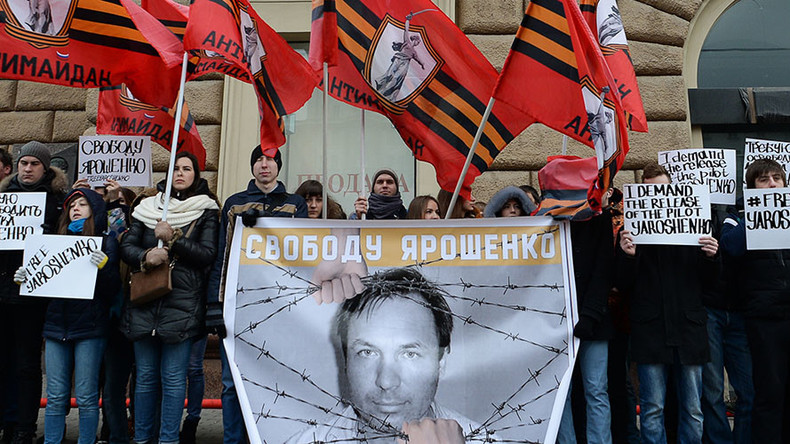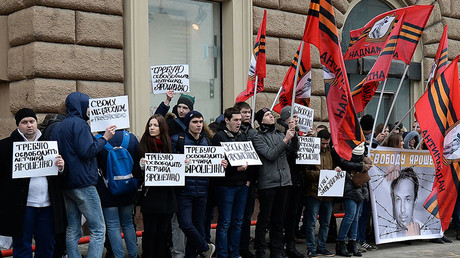Russian ombudsman asks Trump to pardon pilot Yaroshenko

“I have signed a letter to the US president with a request for pardon,” Tatyana Moskalkova said in an interview aired on the Rossiya TV channel on Sunday. She added that she had addressed Trump in particular because the United States does not have the post of human rights ombudsman.
Moskalkova had earlier quoted Yaroshenko’s wife Victoria as saying that the harsh conditions he was experiencing in the US prison system had already caused the serious deterioration of her husband’s health. In particular, she mentioned the poor quality of food and the lack of long-term visits from relatives.
Viktoria Yaroshenko said in comments with RIA Novosti that she hoped that the letter from the Russian ombudsman would help secure the release of her husband. She added that she had previously personally met Moskalkova and told her how Konstantin Yaroshenko had been arrested on invented charges, kidnapped from the territory of a third country, and forced to endure the inhumane conditions of his imprisonment.
Commercial aircraft pilot Konstantin Yaroshenko was sentenced to 20 years in prison in the United States in 2011, for allegedly participating in a conspiracy to smuggle drugs into the country. The charges against him, however, are based on the testimony of US agents who launched a sting operation against him. He was arrested in Liberia and was flown to the US without any official extradition procedure, despite protests from Russia.
The pilot himself has always maintained his innocence, and insisted from the very beginning that his case was not about drug trafficking. He says his poor command of English prevented him from understanding the nature of the suggestions made to him by undercover DEA agents.
He also claims that the US denied him medical service and deliberately kept him in conditions that threatened his deteriorating health, promising to stop on condition that he pleaded guilty. Yaroshenko says that his treatment is equivalent to torture.
The Russian pilot has repeatedly requested extradition to his homeland under the international prisoner exchange convention, but the US justice system has denied all of these requests, quoting the seriousness of charges that led to the conviction.











